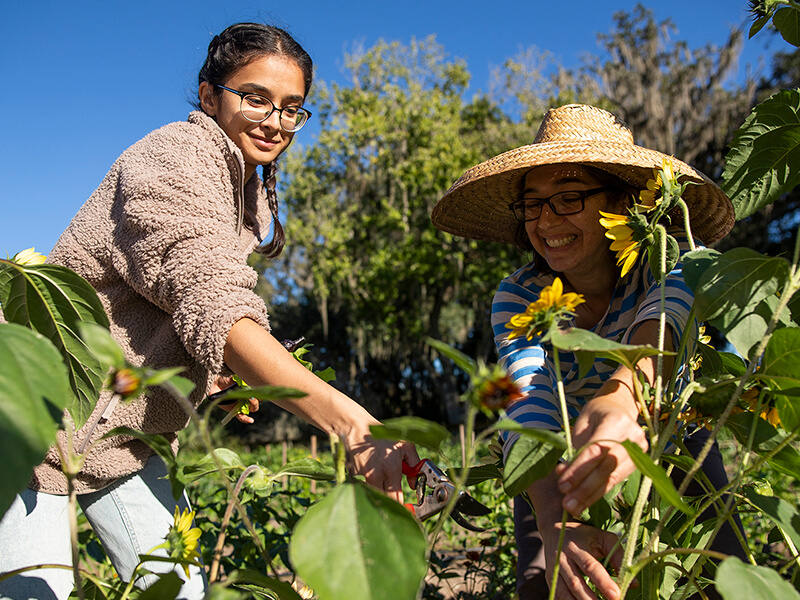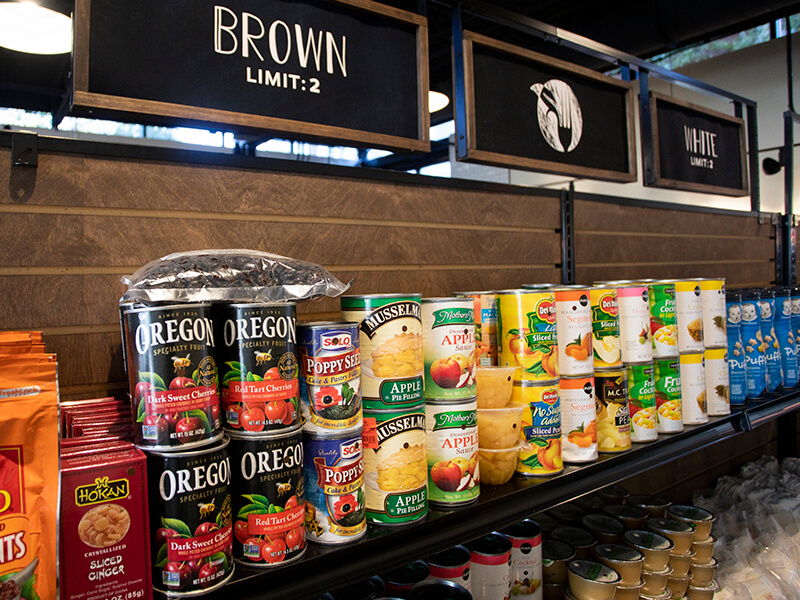Welcome to Field & Fork Farm and Gardens!
At the heart of the UF College of Agricultural and Life Siences, the Field & Fork Campus Food Program offers hands-on learning in sustainable agriculture and food systems. Through the Field & Fork Farm and Gardens, students gain real-world experience growing food in a production setting while helping to provide health, fresh produce to those in need. We proudly collaborate with the Dean of Students Office and the Alan and Cathy Hitchcock Field & Fork Pantry to strengthen food security and foster a more resilient campus community.



